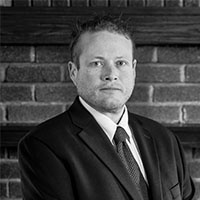Cass County, ND Felony Lawyers
Sponsored Law Firm
-
 x
x

Click For More Info:
-
Larson Latham Huettl, LLP
1100 College Drive Bismarck, ND 58502» view mapCriminal Defense Law Over 35 Years Experience.
You need an attorney with accident & injury knowledge who will vigorously protect your rights and interests.
800-953-1581
Not enough matches for Cass Felony lawyer.
Below are all Cass lawyers.
Lindsey Duane Haugen
✓ VERIFIEDBorn in Larimore, ND, Lindsey graduated from the University of North Dakota in 1999 with a Bachelor of Science in criminal justice and minors in socio... (more)
Todd Michael Miller
✓ VERIFIEDTodd Miller was born in Fargo, North Dakota where he attended school and graduated from Fargo North High School. He is an Eagle Scout. After graduatin... (more)
Stacey Tjon Bossart
✓ VERIFIEDStacey has been a member of the firm since July 1, 2012. She had been a partner of another Fargo law firm for 15 years prior to joining Haugen Moeckel... (more)
 Gregory Larson Bismarck, ND
Gregory Larson Bismarck, ND AboutLarson Latham Huettl, LLP
AboutLarson Latham Huettl, LLP Practice AreasExpertise
Practice AreasExpertise



